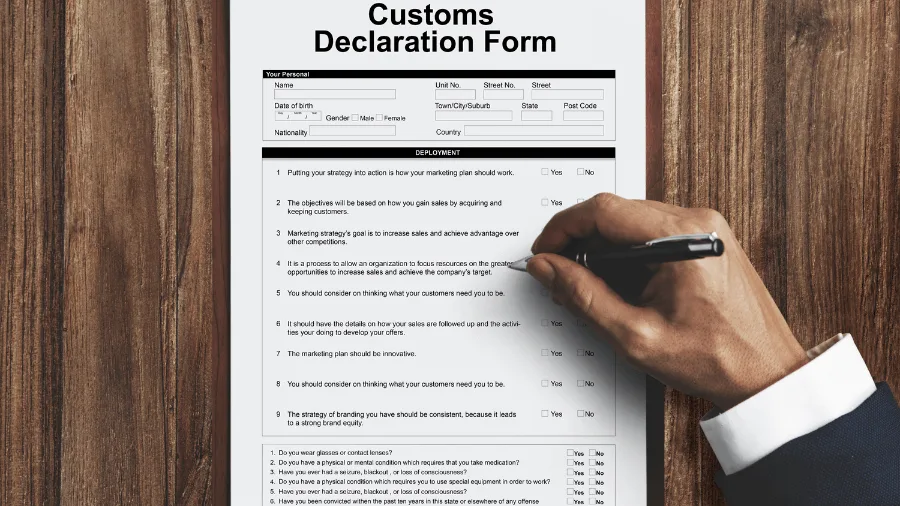Ensuring your packages pass through customs without a hitch starts with a proper customs declaration. This crucial document not only prevents the entry of illegal or unsafe goods but also protects your business from potential penalties and delays. For businesses engaged in international trade, understanding the importance of accurately completing the customs declaration form is vital for maintaining efficient and uninterrupted operations. By providing the necessary details about your shipment, you ensure compliance with customs regulations, enabling a smooth and timely movement of goods across borders.
Let’s dive into the importance of customs declarations and how they contribute to the seamless movement of goods across borders.
Why is customs declaration important?
Customs declaration is crucial for several reasons:
- Security: It helps authorities identify and stop illegal items, such as weapons or drugs, from entering or leaving the country.
- Revenue: The duties and taxes collected through it contribute to government funding for public services and infrastructure.
- Compliance: It ensures transparency, helps to prevent illegal activities like smuggling and money laundering, and supports fair trade practices.
What is the Customs Declaration Form?
The customs declaration form is essential for your goods to pass through customs. It includes critical information about what you are shipping. Ensuring the form is filled out accurately is important to avoid delays or penalties. You’ll need to provide details such as your personal information, a description of the goods, their quantity, value, and any required supporting documents.
Components of Customs Declaration Form:
The following elements are essential for ensuring the proper processing of goods through customs:
- Personal Information: The name, address, and contact details of the importer or exporter responsible for the shipment.
- Description of Goods: A clear description of the goods being shipped, including their type and purpose.
- Quantity and Value: The number of items and their declared value for customs purposes.
- HS Code: The internationally recognized code used to classify the goods for customs.
- Country of Origin: The country where the goods were made or produced.
- Shipping Information: Details of the transportation method (e.g., air, sea, land) and the carrier handling the shipment.
- Licenses or Permits: Documentation required for specific regulated items, such as import/export licenses or permits.
- Duties and Taxes: Information on any applicable import duties, taxes, or fees that must be paid for the goods.
- Customs Broker Details: Information on the broker or representative managing the clearance process (if applicable).
- Declaration Statement: A statement confirming that the information provided is accurate, often requiring a signature from the responsible party.
How to Declare Customs?
Declaring customs can seem complex, but with proper preparation, it can be straightforward. Here’s a step-by-step guide:
- Understand the Regulations: Before shipping goods or traveling, learn the customs rules of the destination country. Each country has its requirements.
- Prepare the Documents: Collect all necessary documents, such as your passport, invoices, and any licenses related to the goods you’re transporting. Keep them organized.
- Fill Out the Form: Accurately complete the customs declaration form, including detailed descriptions of the goods, their quantity, value, and purpose. If unsure, ask a broker for help.
- Declare Restricted Items: If you carry any restricted or prohibited items, declare them. Failure to do so can result in fines or confiscation.
- Submit the Form: Submit the completed form to the authorities. If traveling, hand it to the officer at the border. For shipments, submit the form online.
- Cooperate with Customs: Be ready for inspections or questions from authorities. Respond quickly and honestly to any requests for information.
- Pay Duties and Taxes: If there are any duties or taxes on your goods, pay them as required. You can usually do this at the office or online
Optimize Your International Shipments with IOR Africa
Experience a seamless customs declaration process by leveraging our expert guidance to confidently navigate trade regulations while benefiting from our trusted EOR solutions. We manage every aspect of your customs declaration requirements, ensuring full compliance and eliminating the risk of delays or penalties. Let us simplify your international trade operations so you can focus on growing your business.
Fill out our form today to get started on your journey toward smooth global operations.

